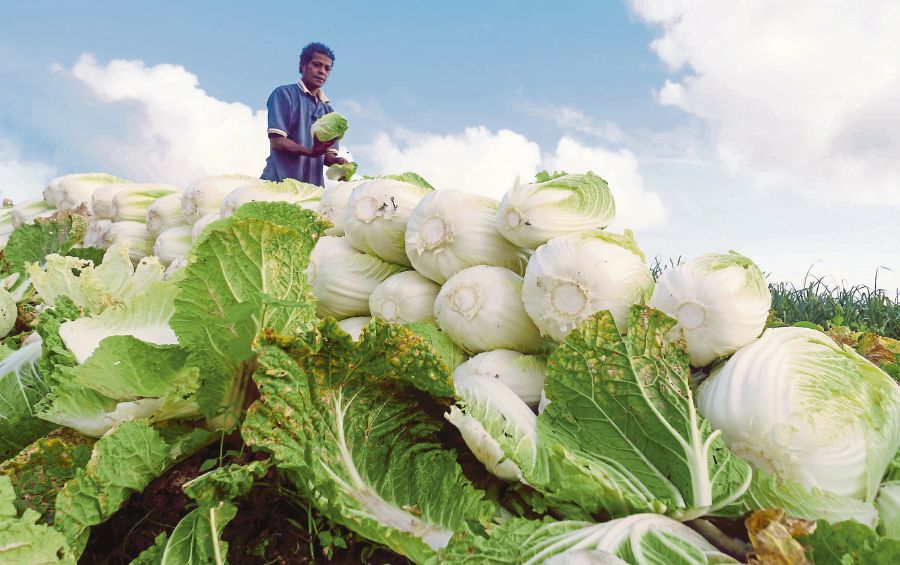BY 2050, 66 per cent of the world’s population is estimated to reside in urban areas. While cities strive to urbanise, the abundance of food and attitude of consumers in urban areas are leading causes of food waste. In developing areas, low-income households view food wastage as unacceptable. As we develop, there seems to be a tendency to waste food merely because we can afford to throw it away.
If food wastage were to be a country, it would be the third largest greenhouse gas (GHG) emitter in the world, after China and the United States. Its total emissions would be 4.4GtCO2 eq, which are 1.5 times higher compared with India, the world’s fourth largest emitter.
Closer to home, can cities in Malaysia secure food when half of our population highly subscribes to food-wasting habits? Look at the frequently quoted figures by the Malaysian Agricultural Research and Development Institute (Mardi): households in Malaysia produce 3,000 metric tonnes of food waste per day that are still edible and could possibly feed two million starving people around the world. In relation to urban dwellers, nearly 30 per cent of the world’s agricultural area is used to produce food that is ultimately not consumed! Imagine how much greenhouse gases have been emitted due to our wasteful consumption?
Although Japan annually produces about five to eight million tonnes of edible food waste, the “recycling loops” concept — a symbiotic relationship between industries and urban areas — and Food Recycling Law successfully address high import dependence on animal feed. Furthermore, the Japanese government is targeting a 38 per cent self-sufficiency level (SSL) of feed for livestock by 2020 by reutilising food waste.
In Malaysia, we have a similar initiative for recycling cooking oil. Did you know that the selling price of 1kg of used cooking oil is RM1? Or, more importantly, did you know that a local university is offering three collection centres in Serdang to convert used cooking oil to biodiesel? Sadly, this initiative is hard to scale up simply because there is low awareness among consumers and food-related businesses. Moreover, accessibility is limited. Imagine someone from Kuala Lumpur having to drive an hour to and from the collection centre in Serdang.
Making integrated recycling facilities available to the public and nurturing consumer behaviour towards zero food waste are equally important. These can trigger consciousness of living in a world with limited natural resources. To a large extent, cities could close the gap between foods available today and those needed in 2030 or 2050 and beyond.
Cities play a great role in curbing food wastage. Home composting can potentially divert up to 150kg of food waste per household per year. Beyond household initiatives, food-related businesses should be equipped with information on how to donate edible food to the communities in need as a component of a city’s rescue system. Collectively, both initiatives could minimise landfill loads, as well as contribute to a more responsible consumption and production pattern. Adopting responsible consumption behaviours is a global strategy to battle food wastage in line with the Sustainable Development Goal (SDG) 11: Sustainable Cities and Communities and SDG 12: Responsible Consumption and Production.
SecondBite, a non-profit organisation in Australia, facilitates food donation by linking food producers with community groups and food banks. Playing the role of “food broker”, the donation (edible food) will be distributed to those in need. To date, 3,000 metric tonnes of edible food a year have been salvaged. On top of that, Secondbite is actively working with state governments to promote food donations that are protected by legislation.
Bear in mind that if food wasting habits continue on their current trajectory, an additional 60 per cent of food will be needed to cater to the global food demand in 2050.
Moving forward, developing an integrated food loss and waste monitoring protocol will better manage the disposal of food waste. For instance, equipping households in Malaysia with a home composting machine to convert organic waste at homes in urban areas will safely dispose of the inedible food waste. Unfortunately, we have yet to draw up a food waste reduction target.
In our final sprint of graduating from a middle-income to a high-income country, our inefficiencies in curbing food wastage suggest big savings opportunities. In battling food waste, urban dwellers must be able to foresee the negative impact of exceeding planetary boundaries.
The MySaveFood campaign, recently officiated by Chief Secretary to the Government Tan Sri Dr Ali Hamsa, should be streamlined to address the issue of food-wasting habits in cities and reutilising food wastage for long-term wealth creation.
This article first appeared in New Straits Times on 18 April 2017.





